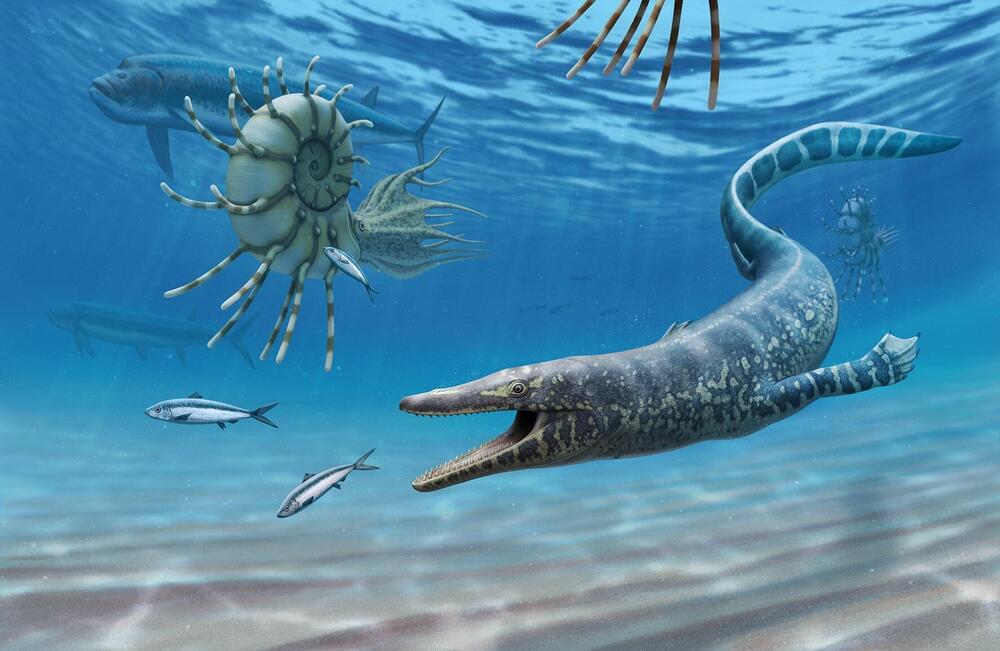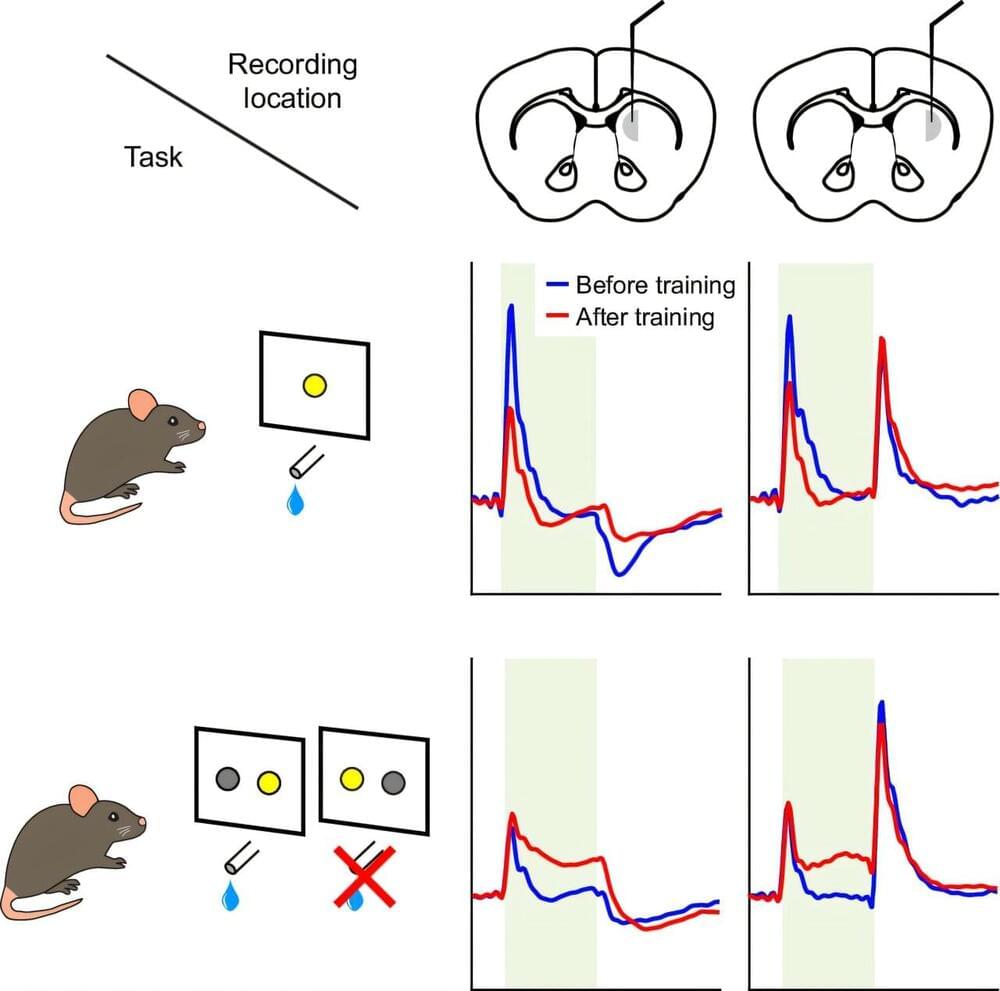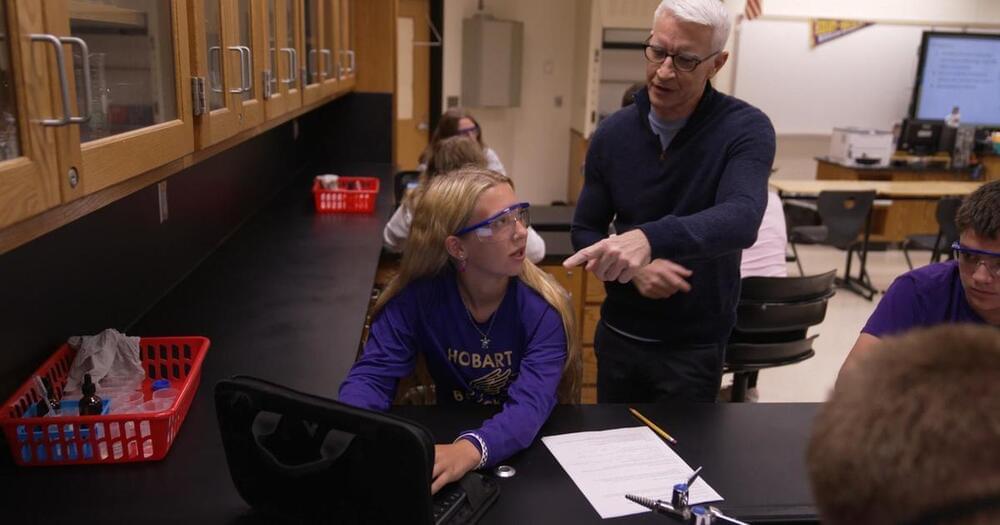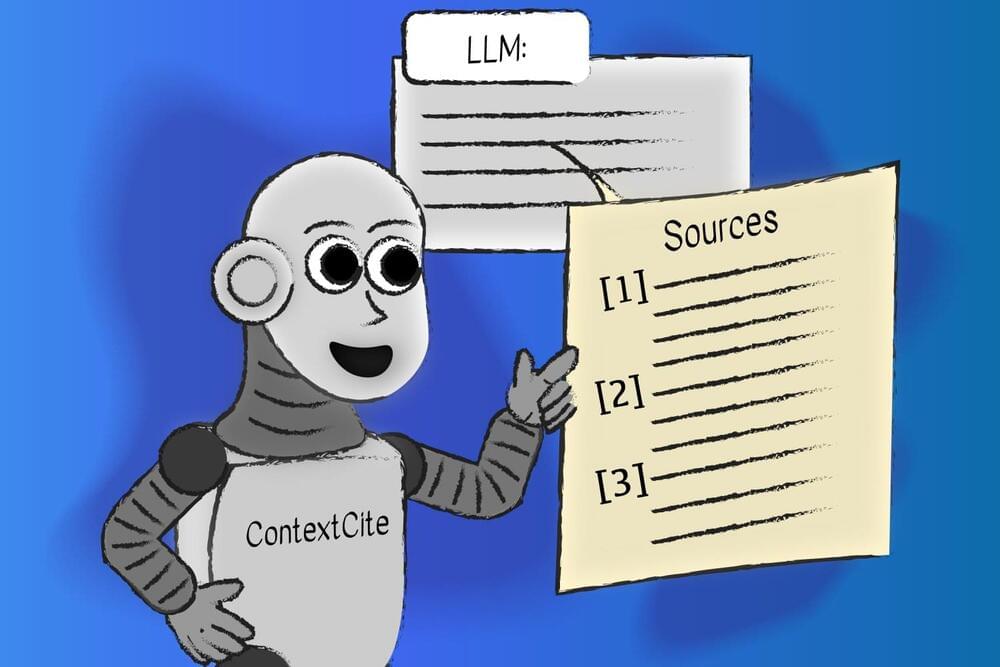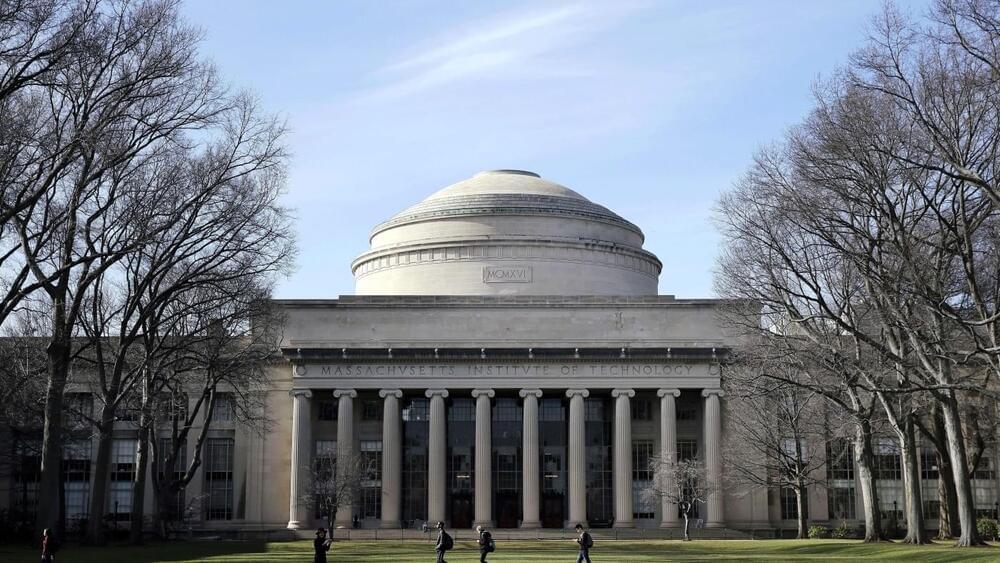Dec 13, 2024
New insights into the evolution and paleoecology of mosasaurs
Posted by Genevieve Klien in categories: education, evolution
Mosasaurs are extinct marine lizards, spectacular examples of which were first discovered in 1766 near Maastricht in the Netherlands, fueling the rise of the field of vertebrate paleontology. Paleontologist Michael Polcyn presented the most comprehensive study to date on the early evolution and ecology of these extinct marine reptiles.
On 16 December, Polcyn will receive his Ph.D. from Utrecht University for his research into the evolution of the mosasaurs. Mosasaurs are a textbook example of macroevolution, the emergence of new and distinct groups of animals, above the level of species. Although they have been studied for centuries, new discoveries, novel research approaches, and the application of technology, are still teaching us about their relationships and behaviors, some of which continue to surprise us.
For example, through the use of detailed comparative anatomy aided by micro-CT scanning technology, we have gained a much better understanding of what group of lizards mosasaurs likely evolved from.
